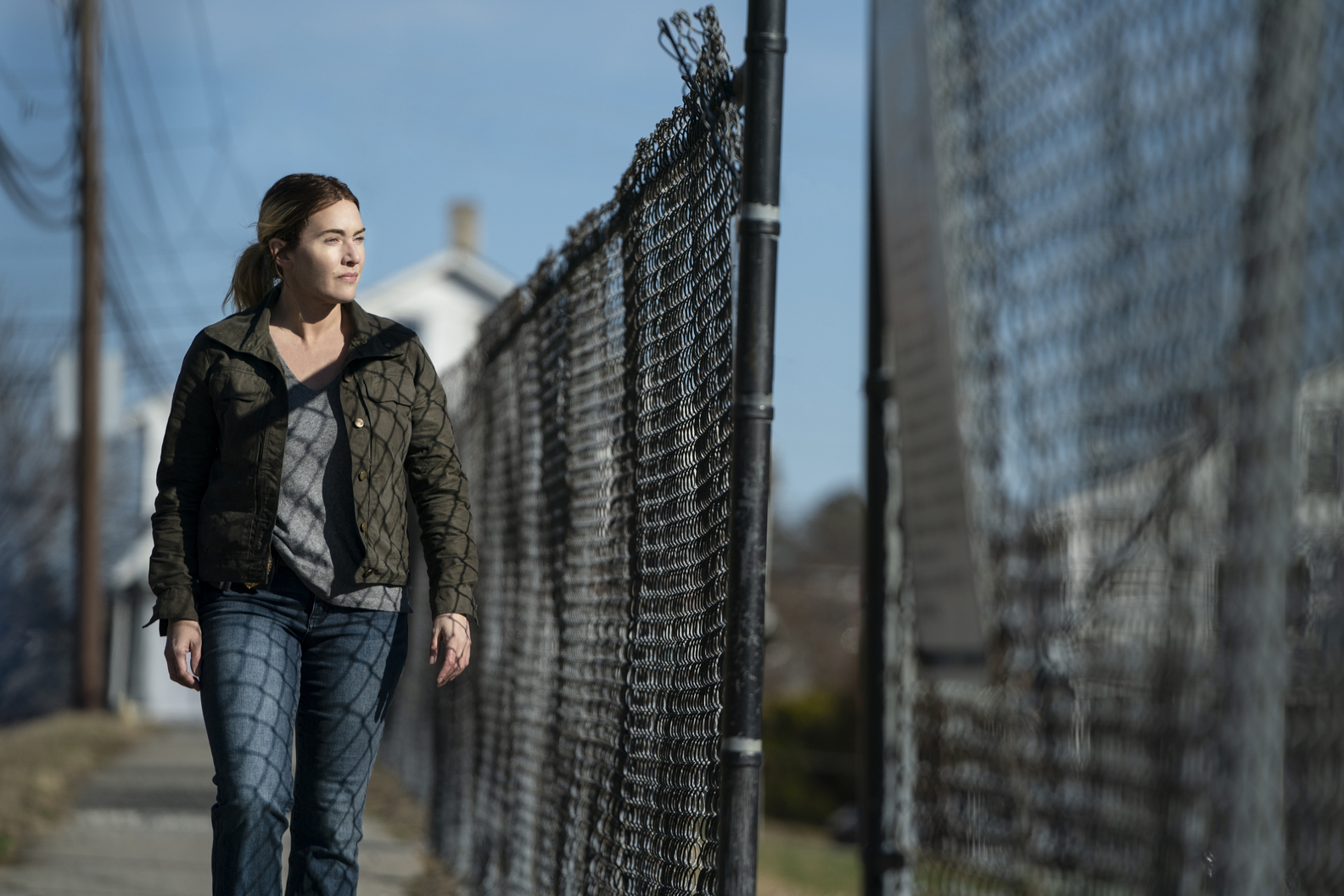Like a lot of people, I just watched “Mare of Easttown,” a seven-part HBO series set in a Philadelphia suburb where drug use, shootings, kidnappings, statutory rape, teen pregnancies, suicide, incest, life-threatening illnesses and betrayals of all sorts are rampant. No wonder the wonderful Kate Winslet, as police Detective Mare Sheehan, is exhausted. Plus, several of the aforementioned social ills afflict her own family.
I hadn’t planned to watch “Mare.” I usually lack patience for multi-episode police procedurals. I want the cops to crack the case in an hour.
But I read Maureen Dowd’s profile of Winslet in The New York Times – not sure why – and got curious, and not, I hope, because I wanted to see the star’s “bulgy bit of belly,” which Dowd and a bunch of other writers made much of. (The other big topic among Dowd and various mini-Dowds was how Winslet, an Englishwoman, nailed the tricky Philly accent.) Probably what drew me to the series was the Pennsylvania setting.
So many grim things happen in the first episode that I almost quit right there: too bleak. But people I know exhorted me to hang with it, so I did and then I got hooked, despite such over-familiar tropes as:
- the interview room scene at the stationhouse where the cop tells the suspect she’s “trying to help him” (hah!)
- the kidnap victims who are shut away in some hell hole and make a racket to alert their rescuers to their presence
- the parade of false culprits, which always reminds me of the climax of the old TV game show “To Tell the Truth,” when the host tells the real Ms. X to “please stand up,” but before she does so, each of the two impostors makes like she’s about to stand up, just to fake out the celebrity panelists (and the audience).
Happily, there’s more to “Mare of Easttown” than cop show cliches, and there’s certainly more to it than either Winslet’s flash of flesh or her PA pronunciation of the “o” in home.
There’s the quality of the acting, for one thing. Everyone’s good; Winslet is superb. There’s one scene where Mare tries to come to grips with the tragedy that haunts her. As I watched the struggle play out on Winslet’s face and listened to her grope for words, I was simultaneously engrossed in her character and in awe of her performance: How does she do that? How, in general, do actors play pretend in a totally convincing way?

But what’s most compelling about the series is its depiction of a social order on the verge of collapse. A lot of us wanted to believe (though we knew better) that all we had to do was get Trump out of the White House and the country would magically repair itself. “Mare” reminds us of all the ills that were there before Trump and will be there after Biden.
Still, are we that bad off? Strictly speaking, no. While everyone I know has experienced at least one of the calamities that befall the fictional folk of Easttown, it’s hard to imagine such a barrage of calamities happening to a close-knit community all at once. That’s TV for you.
But the series shows us all the things that can go drastically awry in any of our lives. At the end I felt like we humans are either drowning in a raging sea or clinging to a small, slippery rock – surviving, but not exactly safe.
Not that I needed to add to that feeling of precarity, but while watching “Mare of Easttown,” I read a New Yorker article about cobalt mining in Congo. Here, the litany of horrors – real ones – includes child labor, official corruption, corporate malfeasance, fatal mine fires and collapses, poverty, hunger, prostitution and birth defects. And we’re all implicated: There’s Congolese cobalt in the lithium-ion batteries that power our cell phones.
Comparing my life to the Easttowners and the Congolese, I feel like I ought to be perfectly content. Am I? At times. But I want more — never mind of what — which as anyone knows who’s heard the tale about the fisherman’s wife, is asking for trouble.
Never content with the wishes granted by the magic trout her husband caught and released, she goes from filthy shack to cottage to palace to even more resplendent palace until she demands to “become like God,” which lands her right back in the shack she started with.
Some of us are like the fisherman’s wife. Some of the Congolese in Nicholas Niarchos’ New Yorker piece are so miserable that they would gladly live in a filthy shack.
Unlike the cobalt rush in Congo, “Mare of Easttown” is not all grim. There’s a lot of caring and compassion there too, at least among the women. Hal David/Jackie DeShannon were right: Love, sweet love is the only thing, in Easttown, Congo and everywhere else, that there’s just too little of.



